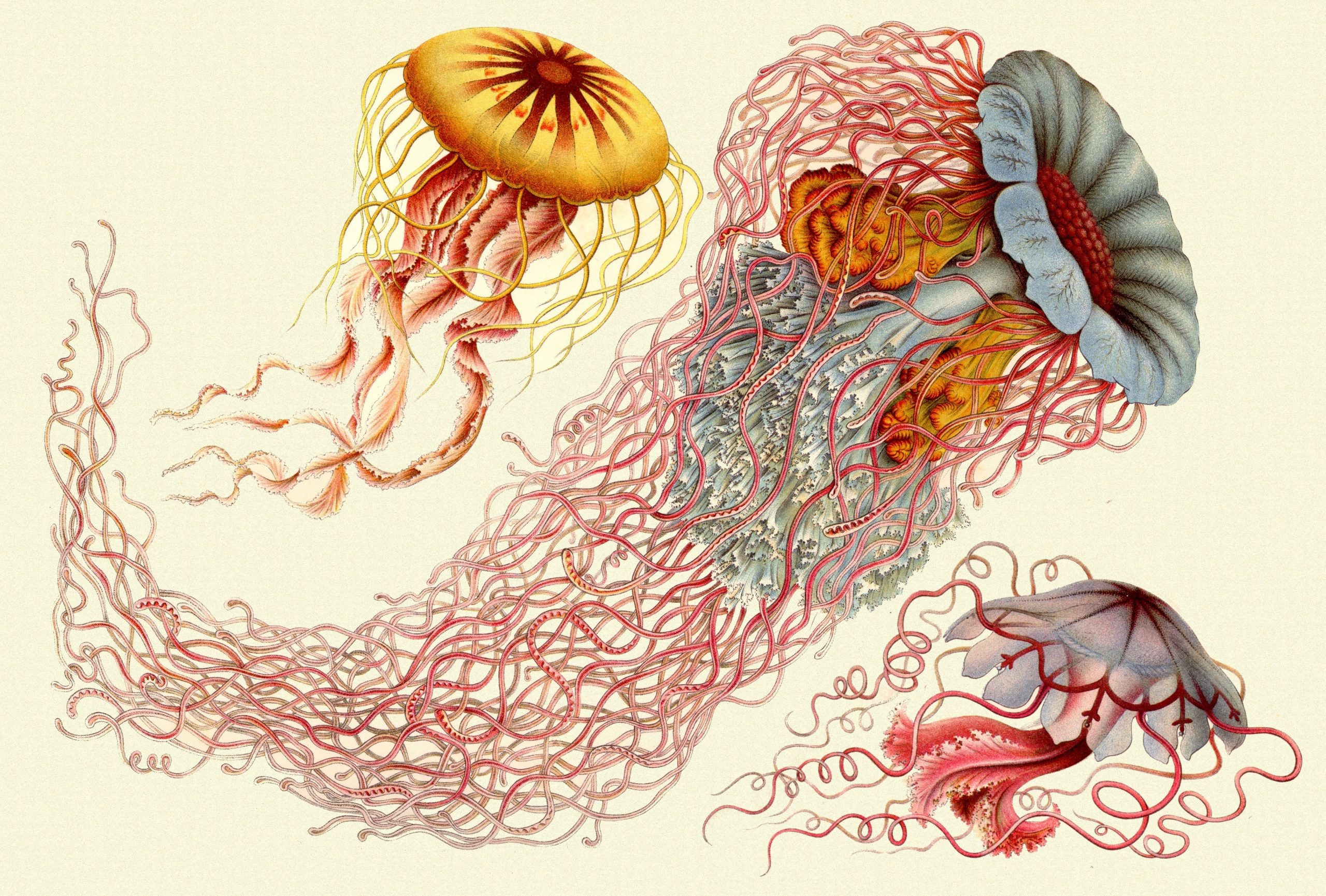Kin.
We know that our parents, siblings, children, aunties, uncles, and cousins are kin. (And that there’s nothing we can do about it!) But how can we come to understand what Indigeous knowledge systems around the world recognize as a broader, deeper, more “meta” notion of kinship––one that unites the web of existence?
What does it mean to take kinship seriously?
That family is complicated is a truism.
If we want to look at the world through the lens of kinship, it’s helpful to keep this fact in mind. Better yet, keep it in body. We human beings embody the complexity of kinship. You’ve probably already heard about the billions of microscopic organisms that inhabit human bodies. In the worlds that are “our” bodies, nonhuman cells and DNA greatly outnumber human cells and DNA.
Understanding kinship isn’t about learning to love the nonhuman parts of ourselves, but rather recognizing that this microbiome is love. But let’s not get too romantic here, because they are also hate, and fear, and dejection. In other words, the health of one’s microbodies is a key determinant of one’s mental and emotional state. To care for our little microbuddies is to care for ourselves. We might imagine that these microbes sense the human body in a way similar to how we larger, “autonomous” bodies (human and other-than-human animals) sense the world around us––as an environment, as a social sphere.
We strive to keep our house clean, keeping other creatures out. But the other is already within! Our spatial condition is one of bodies within bodies, houses within houses. We are each in community with the creatures that live in and on our bodies. The body is a shared space.
To take kin seriously is to think ecologically, understanding that even the individual, the one, is actually the many. Human bodies are ecosystems and are also a part of larger ecosystems, which are themselves a part of biomes, planets, solar systems, and so on and so forth. Kinship means that everything is made of everything else.
Joining microorganisms in the feedback system of our emotions, personalities, and senses of self are other humans. Our bodies are a mush of other humans (like their DNA) and their nonhuman components (like their microbes). And we are also a mush of their emotions, personalities, and senses of self and other. This soup of self is spiciest in shared households and communities. But we are also all stirred up together in the black pot of nation, culture, and world. Here is where the many once again become the one. Kinship means that everyone is made of everyone else.
The way I see the world, the way I see myself, is influenced by the way you communicate the world to me, the way you respond to my self. The vibes we pick up from each other affect bodily and community ecosystems. Such dynamics can be positive (contributing to the equilibrium and cohesion of the community and body ecology) or they can be negative (contributing to their dysbiosis and dissolution). Put simply, stress kills off beneficial bacteria, encourages the growth of pathogens, transforms the personality, and can lead to alienation, depression, and disease. Put even more simply, racism, misogyny, xenophobia, homophobia, transphobia, etc. are forms of fratricide. Kinship means that care (and its lack) is communicable.
We might say that this charge to take kinship seriously is a fundamental human challenge). This is because so many of us have lost our sense of kinship––not just the meta-kinship of humans and nonhumans, but also the simple kinship of all human beings. Human kinship is entry-level Kinship 101. And we have been in remedial courses for centuries.
The Enlightenment knowledge system emerged in the 18th century with a quest to differentiate, categorize, document, contain, and study––that is segregate––existence. Enlightenment severs us from the wisdom that comes from the dark. Dark wisdom is held within our bodies and in the dark matter that connects one’s body to the bodies of others.
Kinship is a dark wisdom.
Toolshed opens a space for encounters in the dark matter of kinship.
